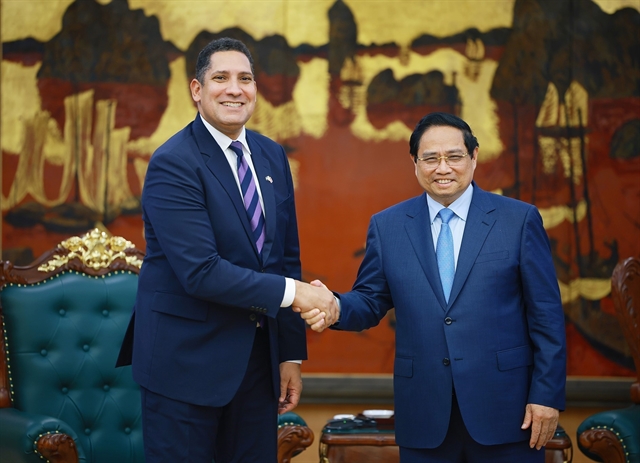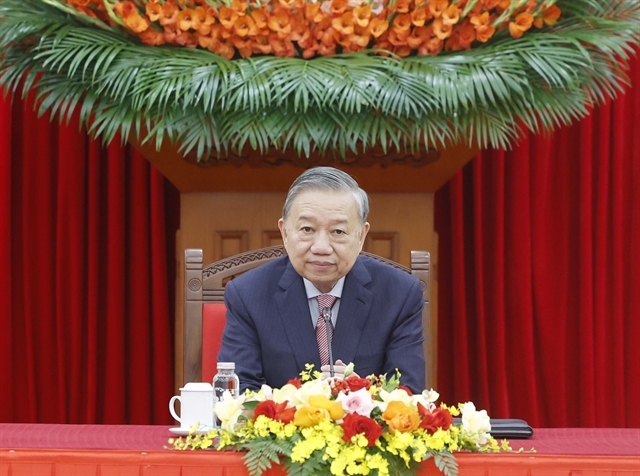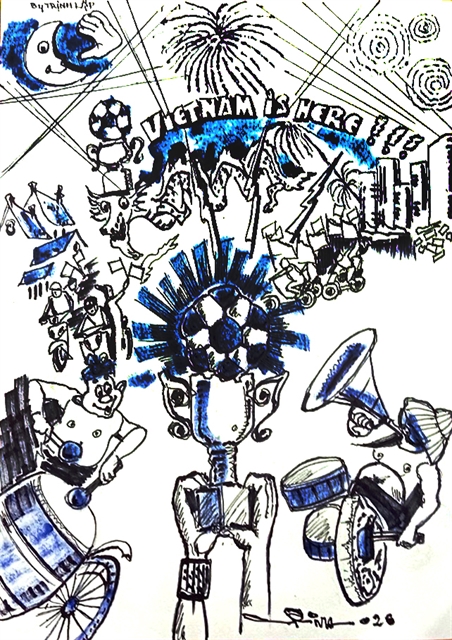 Talk Around Town
Talk Around Town
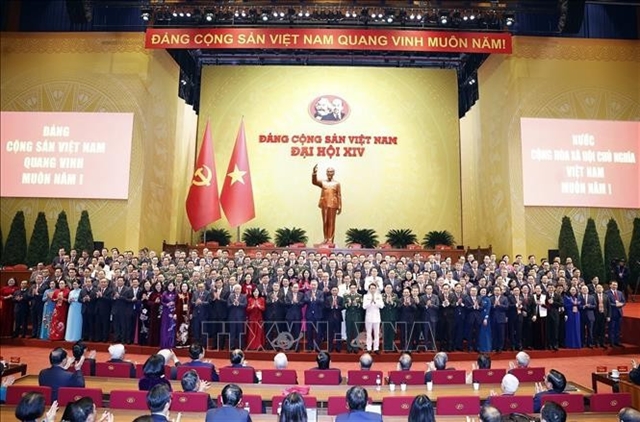
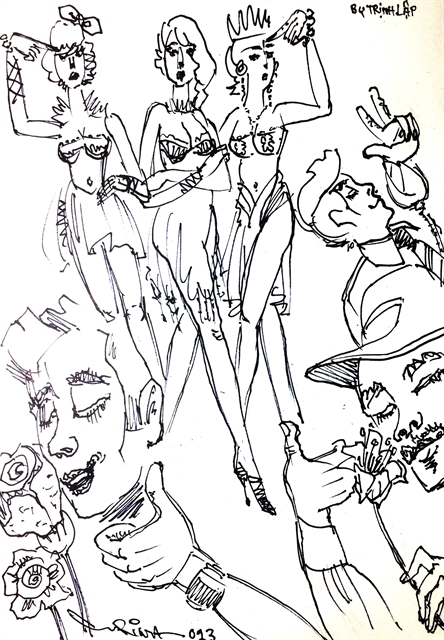
|
| Illustration by Trịnh Lập |
by Trương Khánh Linh
"If you worry too much about your looks, how on earth will you be able to make time for other important things in life?" My grandmother's words resonated with me as I stood in front of the mirror, scrutinising every part of my body that I deemed to be imperfect.
It was a thought that had crossed my mind many times before, but for some reason, her words hit me differently this time. It made me wonder where this obsession with beauty came from and what impact it had on women.
When I asked my 71-year-old grandmother about her thoughts on the beauty standard in today's world, she shared her own experiences with me. She explained that when she was younger, beauty standards were much less rigid and there was less pressure to conform to a certain look. However, she has noticed that in recent years, there seems to be a lot more emphasis on physical appearance.
"I worry that women are spending too much time and money on trying to look a certain way, instead of focusing on more important things in life. There's nothing wrong with wanting to look nice, but when it becomes an obsession that takes away from other aspects of your life, that's when it becomes a problem," she said.
To gain a better understanding, I reached out to young women in their 20s to discuss their perception of beauty and their insecurities.
Phạm Hương Giang, a 22-year-old college student, shared her struggles with acne: "I feel like I'm constantly hiding behind makeup. I've tried tons of skincare products and spent every dime I made to get rid of my acne, but nothing seems to work.”
She is currently saving up money to get better treatment. The pressure mostly comes from people around her like her friends and family. Their unsolicited comments on her appearance pressure her to change herself.
Nguyễn Thị Thu Hà, a 21-year-old student, said: “When I was younger, I felt great about my body, but as I got older, I began to feel like I didn't measure up to the beauty standards that society set for women. Thinness and 'perfection' seemed to be the only acceptable ways of looking, and I felt like I had to be thin and conventionally attractive to be valued or accepted.”
I bet that all women my age are familiar with the infamous "IU's diet", named after a popular South Korean singer and actress. The diet is said to be one of the most effective ways to lose weight but involves eating only an apple for breakfast, a sweet potato for lunch, and a protein shake for dinner. This extreme diet is just one example of the pressure women face to conform to narrow beauty standards. On top of that, countless workout videos on YouTube promote getting rid of natural body features such as hip dips and the lack of a thigh gap. No wonder women of this generation are super self-conscious and highly critical of their bodies.
I, in fact, have witnessed plenty of women, even teenagers, try these insane methods. My 15-year-old sister once told me: “I have to be skinny or else I will die.” I was so shocked after hearing the sentiment.
Despite the negative impact, there are positive developments in the form of body positivity and body neutrality movements. These movements aim to challenge societal beauty standards and promote inclusivity and diversity.
One prominent voice in the body positivity movement is Lê Thụy, a Vietnamese TikTok influencer. Thụy is known for her confidence and her effortlessly funny videos, where she shows her bare face with acne and even displays her armpit hair, which is often considered taboo for women. When first posting TikTok videos, she received a lot of criticism from the viewers. However, despite a lot of negativity, she continues to rise above it and make people fall in love with her wonderful personality.
Speaking from my personal experience, as someone who has struggled with body image issues in the past, the concept of body neutrality has been incredibly helpful for me. For years, I felt like my worth was entirely tied to my appearance, and I spent a lot of time and energy trying to meet society's narrow beauty standards.
When I first heard about body neutrality, I was sceptical. It seemed counterintuitive to focus on something other than appearance when it came to body image. But as I learned more about the movement, I began to see its benefits. By shifting my focus away from appearance and towards my body's functionality, I was able to start appreciating it for what it could do rather than how it looked. I started to view my body as a tool that allowed me to run, dance, and explore the world, rather than simply as something to be judged based on appearance.
Another positive development is the increasing availability of cosmetic surgery. While many criticise the cosmetic surgery trend, I believe it has given women the freedom to make choices about their appearance.
However, it's important to recognise that cosmetic surgery is not a panacea. While it can help women feel more confident, it does not address the root cause of societal beauty standards that perpetuate negative stereotypes about women's appearance.
As a woman myself, I've felt the pressure to conform to certain beauty standards, whether it's through social media, cultural expectations, or the availability of cosmetic surgery.
But I'm heartened to see positive developments on the horizon. It's important to remember that beauty is subjective and comes in all shapes and sizes and that we should be promoting inclusivity and diversity rather than adhering to narrow, unattainable standards. After all, every woman deserves to feel beautiful and confident in her own skin, regardless of whether she fits into someone else's idea of what is "beautiful". VNS

